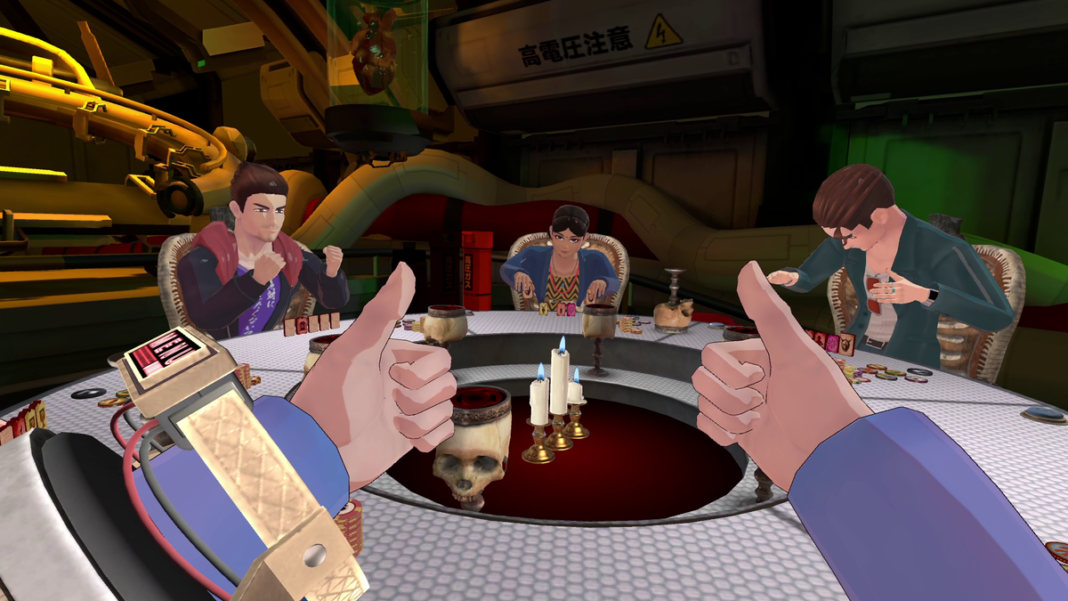Contents
SWERY Envisions the Future of Virtual Reality Beyond Gaming
SWERY, the renowned creator of Deadly Premonition, believes that virtual reality (VR) is on the verge of becoming the next major computing platform, surpassing its current role in gaming. In a recent interview, he shared his insights on the evolution of VR technology and its potential applications in everyday life.
Lead: In an eye-opening interview with UploadVR, Hidetaka ‘SWERY’ Suehiro, the creator of the cult classic Deadly Premonition, discussed his vision for the future of virtual reality (VR) and mixed reality (MR). With advancements in hardware and software, he predicts that VR will transition from its gaming-centric origins to become a foundational computing platform much like smartphones have. Suehiro believes that as headsets become lighter and more wearable, the capabilities of VR could be integrated into various aspects of daily life, reshaping how we interact with technology and the environment.
The Evolution of VR: From Gaming to Everyday Life
As the CEO of White Owls, SWERY has a unique perspective on how VR technology is developing. According to him, the evolution of VR headsets is crucial for mainstream adoption. His vision includes several key advancements:
– **Lightweight Wearables**: SWERY emphasizes the need for VR hardware to transform from bulky headsets to more comfortable, lightweight devices that can be used throughout the day. This shift could encourage wider acceptance among users.
– **Redefining Interaction**: By replacing traditional monitors, televisions, and even car mirrors, VR could fundamentally change how we consume media and gather information. For instance:
– Integrating AR navigation systems with heads-up displays.
– Displaying essential traffic information directly within a driver’s view.
A New Operating System for a New Reality
SWERY also delves into the speculative software advancements that may accompany the next generation of VR technology. He envisions an operating system specifically designed for wearable VR and MR technology that would enable:
– **Seamless Integration**: Users would experience a holistic blend of the real world and immersive digital environments.
– **Casual Gaming**: Games could be played in the periphery of users’ daily activities, making them more accessible and integrated into everyday tasks.
His enthusiasm for this potential transformation is palpable: “Ultimately, I believe VR won’t just be a peripheral for gaming, it’s becoming the next major computing platform, much like smartphones did,” he states.
The Freemium Model in VR Gaming: Death Game Hotel
SWERY’s visionary insights come amid the announcement of a significant shift for his latest project, Death Game Hotel. Originally launched as a premium VR game inspired by the popular series Squid Game, it will soon adopt a freemium model, making it accessible to a broader audience.
– **Launch Date**: The freemium model will go live on April 10, allowing players to experience the game without the initial purchase barrier.
– **Gameplay**: Death Game Hotel combines elements of horror and social interaction, capitalizing on the growing trend of multiplayer VR experiences.
By offering a free-to-play version, SWERY aims to attract more gamers and enhance community engagement, enabling players to explore the dark themes and engaging mechanics without financial commitment.
The Future of Gaming in the VR Landscape
The decision to transition Death Game Hotel to a freemium format signifies a larger trend in the gaming industry toward making titles more accessible. The benefits of this model include:
– **Wider Reach**: Attracting players who may have been hesitant to invest in premium titles.
– **Increased Engagement**: Encouraging social interaction among players, which is crucial for multiplayer experiences.
“I believe we are beginning to see the benefits of community-driven platforms,” SWERY adds, hinting at the importance of establishing a vibrant player base for future success.
The Vision Ahead
As SWERY reflects on the potential of VR technology, he emphasizes that the conversation is rapidly changing. Instead of asking what VR can do, industry leaders and users alike will soon ponder what it cannot do. He concludes with an optimistic view towards advancements in both hardware and network infrastructure.
– **Advancements in Technology**: As headsets become lighter and networks speed up, the possibilities for VR will only expand.
– **A New Normal**: In the near future, the integration of VR into everyday activities could become part of our daily routine, much like smartphones did for communication and information access.
Conclusion: SWERY’s forward-thinking insights into the future of virtual reality illustrate a transformative shift that reaches beyond gaming. As industry advancements pave the way for lighter, more integrated experiences, VR is set to alter how we perceive and interact with the digital world. The transition of Death Game Hotel to a freemium model reflects the growing importance of accessibility and community in the gaming landscape.
Keywords: Virtual Reality, SWERY, Hidetaka Suehiro, Death Game Hotel, freemium model, VR technology, gaming industry, mixed reality, software advancements, everyday life.
Hashtags: #VirtualReality #SWERY #Gaming #Innovation #HorrorGames #DeathGameHotel #VRTechnology #FreemiumModel #GameDevelopment #MixedReality
Source link



